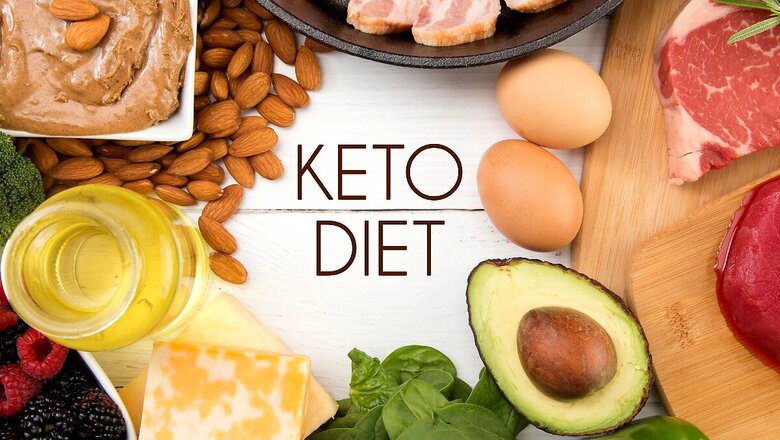
views
Keto, the popular weight-loss diet, may be linked to increased risk of heart disease, a study has found. According to the American College of Cardiology, the ketogenic or ‘keto’ diet could be associated with higher levels of LDL (bad) cholesterol.
Followers of the Keto diet plan, consume very low amounts of carbohydrates and high amounts of fats. A new study presented at the American College of Cardiology’s Annual Scientific Session, together with the World Congress of Cardiology, suggests that the diet may be associated with higher blood levels of “bad” cholesterol and a twofold heightened risk of cardiovascular events such as chest pain (angina), blocked arteries requiring stenting, heart attacks and strokes.
The study, titled ‘Association of a Low-carbohydrate High-fat (Ketogenic) Diet With Plasma Lipid Levels and Cardiovascular Risk in a Population-based Cohort’, compared the participants on a standard diet to those on a low carb-high fat (LCHF) diet. The study was presented by researchers on March 5.
ACC, a global body, credentials cardiovascular professionals in more than 140 countries who meet qualifications and lead in the formation of health policy, standards and guidelines in heart health.
It said that because the study was “observational”, it can only show an association between the diet and an increased risk for major cardiac events, not a causal relationship.
However, it suggests further research in prospectively designed studies, especially when approximately one in five Americans report being on a low-carb, Keto-like or full-Keto diet. In India, too, the diet gained prominence in the last few years.
Results of the Study
The researchers compared the diets of 305 people eating a LCHF diet, with around 1,200 people eating a standard diet. The researchers used health information from the United Kingdom database UK Biobank, that followed up with people for at least a decade, the study claims.
The study found that “those on an LCHF diet had significantly higher levels of both LDL cholesterol and apolipoprotein B (apoB), the protein component that sits on LDL and other atherogenic lipoprotein particles.”
“Previous studies have shown that elevated apoB may be a better predictor than elevated LDL cholesterol for risk of cardiovascular disease,” lead author of the study, Iulia Iatan, was quoted as saying by ACC.
The researchers also noticed that for the participants following the diet, total fat intake was higher in saturated fat and had double the consumption of animal sources (33%) compared to those in the control group (16%).
Overall, the study found that 9.8% of participants on an LCHF diet experienced a new cardiac event, compared with 4.3% of those on a standard diet, doubling the risk.
The researchers in the study defined a low-carb, high-fat (LCHF) diet as 45% of total daily calories coming from fat and 25% coming from carbohydrates. It said that carbohydrates are the body’s first go-to source for fuel to provide energy for daily life.
Low-carbohydrate, high-fat diets like a Keto diet restrict consumption of carbohydrates. By depriving the body of carbohydrates, it is forced to start breaking down fat for energy instead. The breakdown of fat in the liver produces ketones, chemicals that the body uses as energy in the absence of carbohydrates.
Read all the Latest India News here















Comments
0 comment